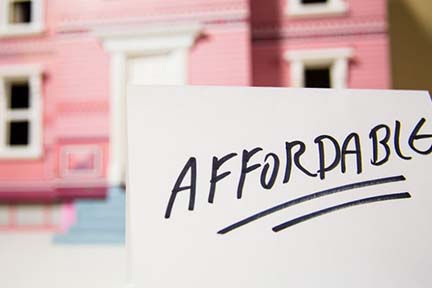
FOR IMMEDIATE RELEASE June 29, 2023 Contact: [email protected]
Gov. Whitmer Signs Legislation to Build More Affordable Housing, Community Projects HB 4375 helps more communities use powerful economic development tools to become more attractive places to live, work, and invest.
LANSING, Mich.—Today, Governor Gretchen Whitmer signed legislation to power economic development in communities across Michigan by expanding the number of communities that can establish land bank fast track authorities. Local governments can use these powerful tools to revitalize vacant, unused, abandoned, or blighted lands and structures, build affordable housing, make downtowns and neighborhoods more livable and attractive, and grow local economies.
“Revitalizing places to make Michigan communities more attractive places to live, work, and invest is a key part of our strategy to help more individuals, families, and businesses make it in Michigan,” said Governor Whitmer. “This legislation will widen access to the powerful economic development tools land bank fast track authorities provide. Whether it’s renovating the old bank or theatre on main street, or turning abandoned lands into places of opportunity, Michigan communities are on the move, open for business, and showing the world how much we have to offer. Let’s keep working together to grow our economy and build a Michigan where anyone can envision a bright future for themselves.”
The bill expands the number of cities and townships in Michigan that can establish land bank fast track authorities to include any city or township with a population greater than 50,000 if that city or township is not located in a county that already has a county authority. Under current law, only counties and the city of Detroit can create these authorities.
“The signing of HB 4375 is a big step as we work to expand the tools for economic development. This law will better empower Michigan’s communities, townships, and cities. Widening the scope of land banks adds a very effective tool for these municipalities so they can better combat the housing crisis and reduce blight,” said bill sponsor Rep. Kristian Grant, (D-Grand Rapids). “Our local communities know best the work that has to be done to meet the needs of their neighborhoods. Allowing these municipalities to create land banks provides them the opportunity to pair it with local resources in a way that the State Land Bank Authority is not designed to do. There are communities across our state, including my hometown of Grand Rapids, that need tools like this so they can effectively work on meaningful redevelopment that uplifts the lives of those in their communities.”
“Affordable housing is a nation issue that requires local solutions,” said Grand Rapids Mayor Rosalynn Bliss. “Thanks to our Governor and lawmakers in the legislature, this bill gives cities like Grand Rapids another potential tool to address critical housing needs.”
Growing Michigan’s Economy and Make it in Michigan In December 2021, Governor Whitmer brought Republicans, Democrats, and public and private sector leaders together to establish powerful new economic development tools that would help Michigan compete for transformational projects. Since then, the state has won $16 billion of projects and more than 16,000 good-paying jobs building electric vehicles, batteries, semiconductor chips, and clean energy—all industries of the future.
To keep this momentum going, the state must continue its successful economic development strategy and expand the toolkit. The governor proposed the Make it in Michigan plan, a comprehensive strategy to build on the work we are doing and help more families and businesses make it in Michigan.
The plan has three pillars: competing for and winning projects to bring manufacturing and supply chains home, investing in people so they can pursue their potential from Pre-K through postsecondary and have their freedoms protected, and revitalizing places to make them more attractive places to live, work, and invest. The Make it in Michigan plan proposes spurring more cutting-edge research and development in Michigan, lowering costs for businesses so they can hire more Michiganders, and working to land more transformational projects in Michigan while making parallel investments in local child care, housing, infrastructure, and workforce programs.
|

